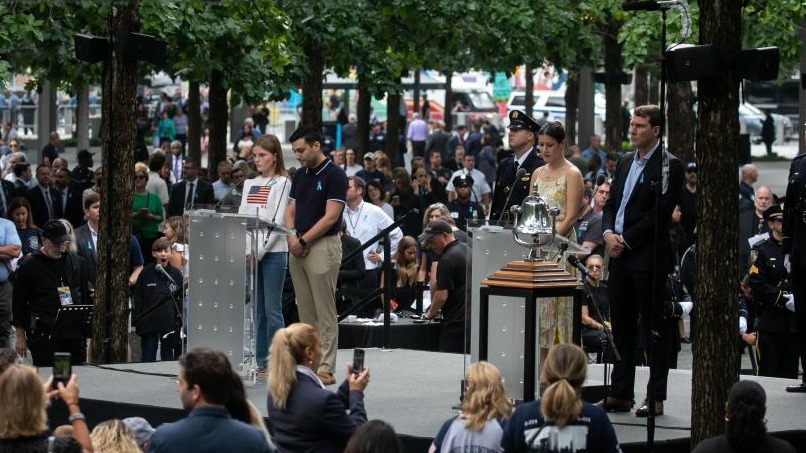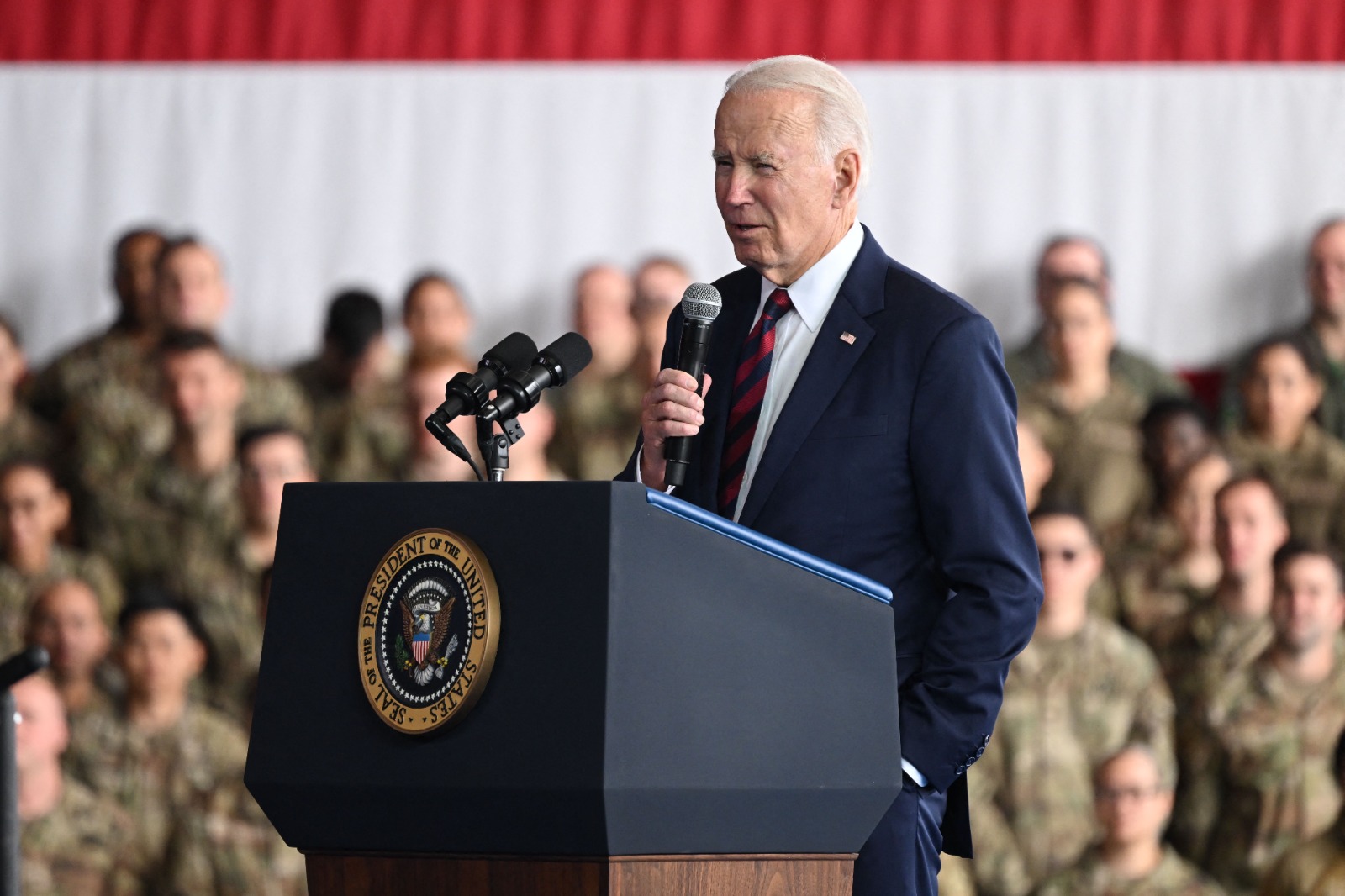As the nation observed the 22nd anniversary of the September 11, 2001, terrorist attacks, Americans from coast to coast came together to remember the tragic events that forever altered the course of history. The day was marked by poignant moments of silence, tearful remembrances, and a shared commitment to pass down the lessons of that fateful day to younger generations. However, amid the solemn commemorations, questions about the enduring consequences of the War on Terror and the state of national unity took center stage.
Bells Toll and Names Echo in Remembrance
In somber ceremonies held in New York, Washington, D.C., and Pennsylvania—where the hijacked planes struck—bells tolled and the names of nearly 3,000 victims were read aloud. This heartfelt tribute served as a powerful reminder of the lives lost and the indomitable spirit that united the nation in the aftermath of 9/11. Families, survivors, and dignitaries gathered to pay their respects and offer solace to one another.
U.S. President Joe Biden, speaking from a U.S. military base in Anchorage, Alaska, on his return from a diplomatic trip to India and Vietnam, urged the nation to honor September 11 by renewing faith in one another. He emphasized the importance of maintaining national unity as the common cause of our time, recognizing the increasing polarization that looms as he approaches a likely election rematch next year against former President Donald Trump.
Unidentified Victims and Lingering Grief
Days before the anniversary, the identities of two more victims from the World Trade Center attacks were revealed—a man and a woman, whose names remain undisclosed at the request of their families. These identifications, achieved through advanced DNA testing, marked a significant development since September 2021. Nevertheless, it served as a stark reminder that 1,104 victims, accounting for 40 percent of those lost, remain unidentified.
The toll of 9/11 extends beyond those who perished that day. The number of first responders who have succumbed to Ground Zero-related health complications now approaches the number of first responders who died during the initial attacks. The Uniformed Firefighters Association of Greater New York highlighted the ongoing tragedy, underscoring the immense sacrifices made by those who rushed to the scene on that fateful morning.
The Unresolved Legacy of the War on Terror
The terrorist attacks on September 11, 2001, directly precipitated the United States’ engagement in the War on Terror. However, as the nation grapples with the consequences of this protracted conflict, questions have arisen about its true impact. Afghan political analyst Sayed Qaribullah Sadat criticized the U.S. intervention, claiming it brought about catastrophic outcomes for the Afghan people, leading to increased civilian casualties and a wrecked economy.
Moreover, Danny Haiphong, an independent journalist and researcher, noted that the U.S. War on Terror extended far beyond the events of 9/11. Haiphong argued that the wars in Afghanistan and Iraq, launched under the pretext of countering terrorism, primarily served the larger aim of expanding U.S. hegemony worldwide. He highlighted the tragic loss of lives, not only of Americans but also millions worldwide, as an enduring consequence of these military endeavors.
In conclusion, the 22nd anniversary of 9/11 serves as a poignant moment of reflection on the enduring themes of unity, remembrance, and the unresolved consequences of the War on Terror. As America pays homage to the lives lost on that fateful day, it also faces the complex challenge of navigating its evolving place in the world and addressing the profound impact of its actions in the name of counter-terrorism.
















